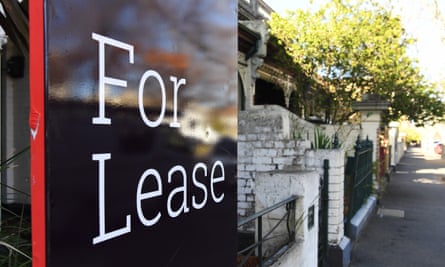Extract from The Guardian
Anglicare says an unemployed single person will be able to afford only 168 properties throughout Australia.

Last modified on Tue 1 Sep 2020 05.53 AEST
Only 21 rental listings across Sydney and Melbourne would be affordable for a single unemployed person when the coronavirus supplement is cut next month, new research claims.
Anglicare’s Rental Affordability Snapshot, to be released on Tuesday, found of the 76,000 advertisements surveyed across Australia, 808 properties were reasonably priced for a single person on the jobseeker payment.
But the figure will drop to 168, or 0.2% of the market, when the federal government reduces the supplement by $300 a fortnight on 25 September.
At the reduced rate, there would be only six affordable rental listings in Sydney and 15 in Melbourne. Elsewhere, there would be 28 in southern Queensland, three in Adelaide, 20 in Western Australia and 60 in Tasmania.
Legislation to cut the supplement comes with about 1.5 million people receiving the jobseeker payment, up from roughly 700,000 before the pandemic.
The supplement essentially doubled welfare benefits in April, adding $550 a fortnight to income support for jobseekers and those receiving student and parenting payments.
The Anglicare report found for a single parent of two children on benefits, only 274 rentals would be affordable, or 0.4% of the market, when the supplement is reduced, down from the current 591 affordable rentals (0.4%).
A couple on jobseeker with two children had slightly better prospects, with 3,971 properties (5.2%) currently within reach. This would decrease to 1,137 or 1.5% under the reduced rate.
Youth allowance recipients who are under 22 had only 625 affordable rentals (0.8%) or 473 share houses (0.6%) to choose from across the country. This would reduce to 52 advertised properties (1.1%) when the supplement is tapered.
Anglicare called for the coronavirus supplement to be made permanent and extended to age and disability pensioners.
“If cuts to payments are phased-in – and if those who are most vulnerable are left out – people will be pushed even deeper into poverty and homelessness,” the report said.
Anglicare’s executive director, Kasy Chambers, said the cuts coincide with the end of rental moratoriums put in place at the start of the pandemic.
She described the situation as a “ticking time bomb”.
Only Victoria, which is in the middle of a second wave, has extended its rental moratorium, with most set to expire next month.
On Monday, Guardian Australia reported that more than 400,000 people in locked-down Melbourne will be among those hit by the $300 cut to the fortnightly supplement.
The report also examines the possibility of a post-December return to the pre-pandemic jobseeker payment, finding 13 properties would be affordable on the old rate of about $40 a day.
Although data has shown rental prices have fallen during the pandemic, the snapshot’s findings suggest rents have been more stable at the bottom end of the market.
With the existing coronavirus supplement, the proportion of affordable listings for a couple with two children on unemployment benefits fell from 11% in April to 5.16% this month.
That is despite data released last month by CoreLogic showing rents fell 0.3% in the month of June, and 0.5% over the quarter, which is the largest decrease since September 2018.
The trends were particularly strong in the capital cities, where rents fell 0.7% across the board.
The report also found there were 625 affordable rentals for a single aged pensioner and 192 for a single disability pensioner this month.
Neither group received a boost to their fortnightly payments during the pandemic and Anglicare notes some properties would not be suitable for people with disabilities.
The report surveyed the market on 1 August. It considers that affordable rents do not exceed 30% of a person’s income.
No comments:
Post a Comment